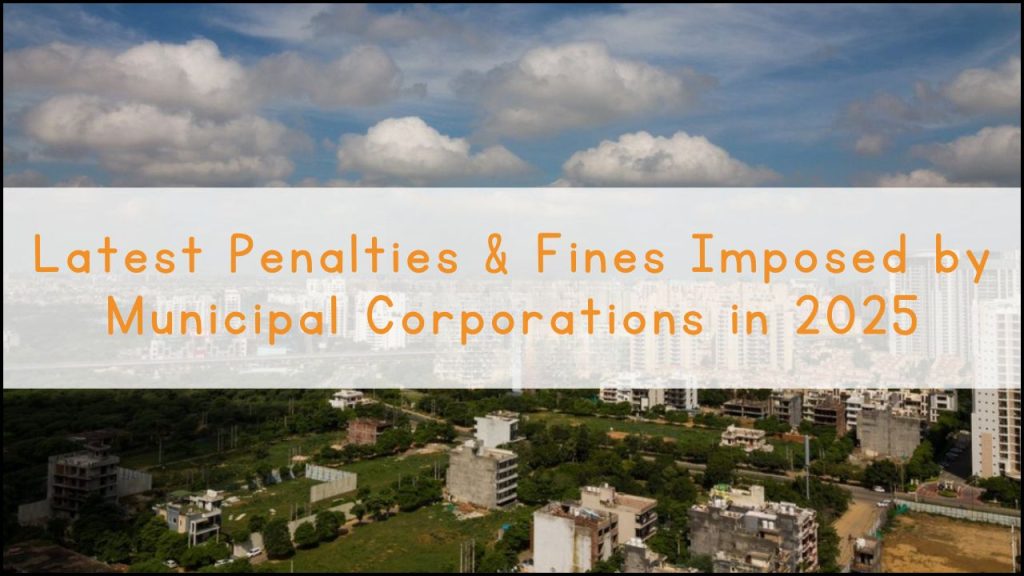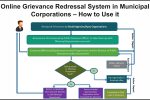
Municipal corporations across India play an important role in maintaining cleanliness, order, and public health in cities. In 2025, stricter rules and updated penalties have been introduced by several municipal bodies. These penalties are aimed at improving city life and encouraging responsible behavior from residents and businesses.
Key Reasons Behind Updated Penalties
- The urban population has increased rapidly in recent years
- Public spaces are often misused due to a lack of awareness
- Civic sense among residents needs improvement
- Pollution levels in cities have crossed safe limits
- Solid waste management has become a major issue
- Encroachments have affected traffic flow and safety
- Illegal constructions have increased despite repeated warnings
Common Violations and Fines (2025)
| Violation Type | Fine Amount (Rs) | Municipal Bodies Involved |
|---|---|---|
| Littering on roads or public spaces | Rs 500 – 2000 | Delhi, Mumbai, Chennai, Hyderabad |
| Burning of waste | Rs 2000 – 5000 | Bengaluru, Pune, Kolkata |
| Illegal parking in no-parking zones | Rs 1000 – 3000 | All metro cities |
| Spitting in public areas | Rs 500 | Delhi, Bhopal, Surat |
| Illegal advertisement boards | Rs 2500 – 10000 | Chennai, Ahmedabad, Lucknow |
| Open defecation | Rs 500 | Tier-2 and Tier-3 city corporations |
| Non-segregation of household waste | Rs 1000 | Mumbai, Indore, Chandigarh |
| Unauthorized construction | Rs 25,000 – 1,00,000 | All urban local bodies |
| Noise pollution (beyond permitted limit) | Rs 2000 | Delhi, Nagpur, Jaipur |
| Water wastage or leakage | Rs 1000 | Bengaluru, Kochi, Hyderabad |
Penalties Introduced for Housing Societies and Businesses
- Housing societies must now ensure proper segregation of dry and wet waste
- Fines for societies failing to manage waste: Rs 10,000 per violation
- Commercial establishments must not discharge untreated waste into drains
- Restaurants using plastic cutlery face fines up to Rs 15,000
- Repeated violations may lead to the suspension of trade licenses
Municipal Corporations Taking Lead in 2025
| City | New Initiative in 2025 |
|---|---|
| Indore | QR code-based waste tracking and spot fines |
| Bengaluru | Marshals deployed to monitor public behavior |
| Mumbai | CCTV surveillance used to catch offenders |
| Chennai | Anti-encroachment drive launched with drone assistance |
| Hyderabad | App-based reporting system for civic violations |
| Pune | Smart dustbins linked to waste collection schedule |
Focus Areas for Fine Collection
- Waste disposal practices are the top focus in 2025
- Traffic violations like illegal parking and footpath encroachment attract high penalties
- Unauthorized hoardings and banners are strictly banned
- Environment-related offenses like noise and air pollution are under strict watch
Technologies Used to Enforce Fines
- CCTV cameras are placed at key junctions and streets
- GPS-enabled vehicles help monitor garbage collection
- Drones are used for construction inspection and spotting encroachments
- Mobile apps allow citizens to report civic issues
- E-challan systems are active for instant fine collection
Example Cases from Different Cities (2025)
Delhi
- Over 10,000 people were fined for spitting and littering in January 2025
- South Delhi Municipal Corporation imposed Rs 25 lakh in fines within one month
Mumbai
- BMC fined 400 societies for non-segregation of waste
- Rs 1.5 crore collected in fines for plastic usage in February 2025
Bengaluru
- 2000+ citizens penalized for open burning of waste
- BBMP announced rewards for citizens who report repeat violators
Awareness Campaigns Started by Corporations
- Posters and public ads are used to spread awareness about penalties
- Street plays and rallies are conducted in schools and public areas
- Short films and video ads show the consequences of civic violations
- Social media campaigns are run to reach the younger population
Public Reactions and Feedback
- Residents have mixed reactions to the increased fines
- Many citizens support strict rules for a cleaner environment
- Some feel the fines are too high for small offenses
- Business owners have requested more time to adjust to new policies
- NGOs have appreciated the steps taken to improve city hygiene
Benefits of Stricter Municipal Fines
- Cities have become cleaner and more organized
- People are more conscious about public cleanliness
- Use of plastic has reduced in several areas
- Traffic has improved due to action against encroachments
- Public participation in civic matters has increased
Suggestions for Improvement
- Penalty systems should be uniform across states
- Citizens must be given time and awareness before strict action
- Municipal officers must avoid the misuse of their fine powers
- Reward systems for good behavior should be encouraged
- Feedback systems should be created for public suggestions
Future Plans by Municipal Corporations
| Plan | Expected Implementation Year |
|---|---|
| Smart bins in all wards | 2026 |
| Facial recognition for repeat offenders | 2027 |
| Online fine dashboards for public access | 2026 |
| Monthly reward programs for clean wards | 2025 |
| New app for civic education and alerts | 2025 |
In Summary
Municipal corporations in 2025 are using advanced methods and strong penalties to improve city life. Fines are not just punishments but reminders of public responsibility. Residents must cooperate with civic authorities to make cities cleaner, safer, and more livable. Responsible citizens can help build better urban spaces for future generations.

Katherine Johnson is a passionate writer with a keen interest in storytelling, content creation, and creative expression. She enjoys exploring diverse topics and crafting engaging narratives that captivate readers.



